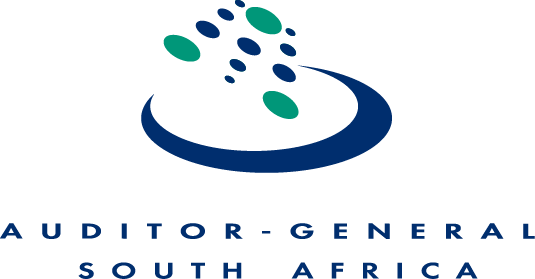
Our people
Breakdown of staff
Total staff - 3 765
AGSA workforce
On 31 March 2022 we had 3 765 staff, including trainee auditors and short-term contract employees, reflecting an increase of 62 employees from last year’s total of 3 703. The increase was mainly due to the number of trainee auditors appointed in the last quarter of the financial year.
Our staff establishment stood at 4 430 positions, with 4 269 approved positions and 161 temporary positions. Temporary positions increased by 46 (40%) since the end of the 2020-21 financial year, largely due to the strained economic climate resulting from the pandemic. The temporary staffing model helps us maintain our agility and a healthy balance between a permanent workforce and flexible staffing solutions to meet our emerging needs.
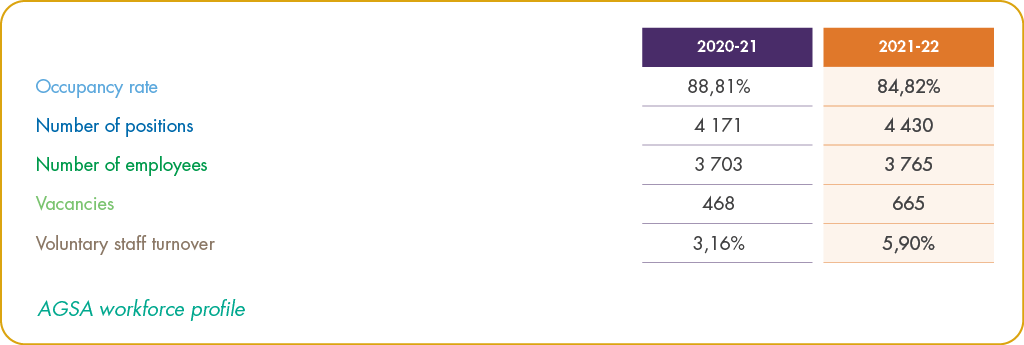
We strive to create a workplace that embraces diversity and promotes inclusion. On 1 April 2021, we entered our final year of implementing our three-year employment equity (EE) plan. When we introduced the plan we benchmarked it against the national economically active population (EAP).
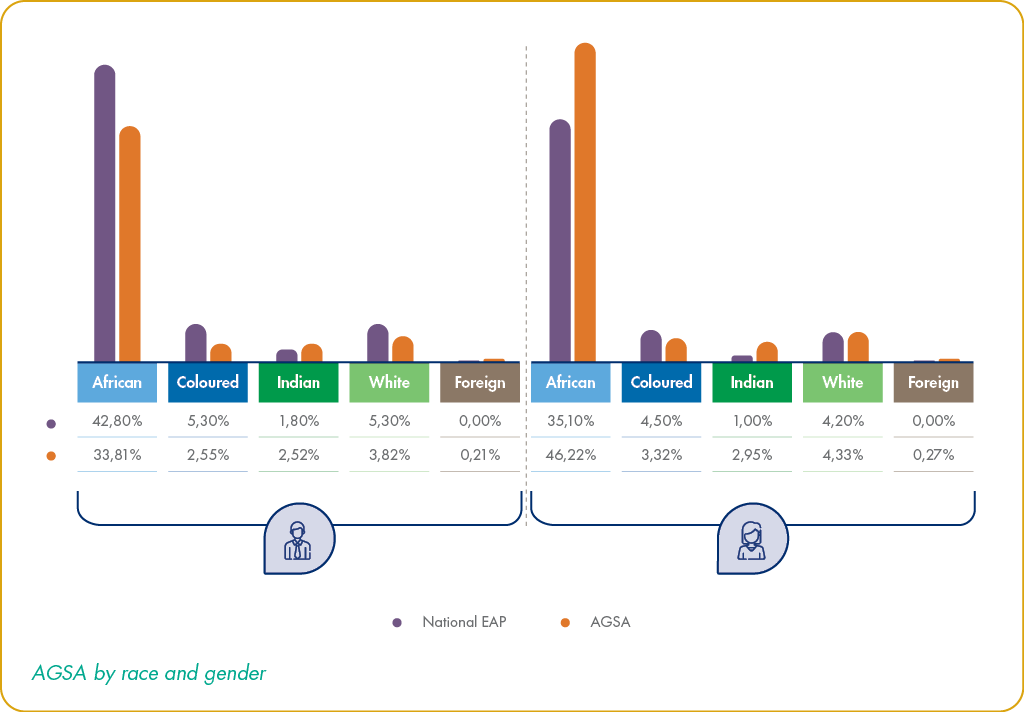
Against an EAP target of 44,8%, 57,08% of our workforce are female, while 42,92% are males against an EAP target of 55,2%. In the previous year, our workforce was 56,6% female and 43,4% male.
Our diverse and inclusive workforce reflects the demographics of South Africa. The race profile shows that the African group has the highest overall representation at 80,03%, against an EAP target of 77,9%.
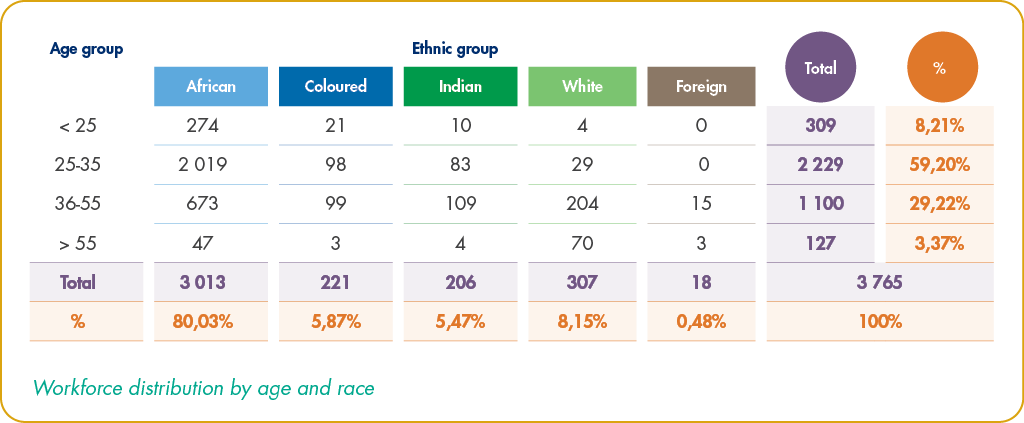
Our predominately young workforce has an average employee age of 34 years, with 67,41% (2020-21: 65,78%) under the age of 36 years. As a learning organisation, the young workforce profile is a deliberate approach to nurturing talent and ensuring a steady stream of professionals for the organisation and the profession. Diversifying our workforce is vital for new ideas and innovation. Information about our employees is helpful when making long-term decisions about areas such as workforce planning, the EVP, talent mobility and new ways of working.

People with disabilities as part of our workforce has decreased slightly from 1,73% in the previous financial year to 1,59% at the end of March 2022.
Over the next financial year, we will focus on developing a new five-year EE plan. Part of the preparation includes reviewing the current occupational levels and aligning them with the EE definitions stipulated in the act.
Achieving the target for persons with disabilities remains a challenge. Our disability plan is being reviewed to ensure that we improve attraction and retention. An internship programme is also being considered.
Developing a new five-year employment equity plan allows a review our occupational levels to ensure that they are aligned to the Code of good practice on equal pay / Remuneration for work of equal value EEA9. This plan will attempt to eliminate all forms of EE barriers.
We are committed to eliminating discriminatory practices through our policies and take a zero-tolerance approach to all forms of discrimination in our reporting processes.
Attract, develop and retain great talent
The demand for skilled candidates in our industry has increased with new entrants to the market in competition for skilled candidates. This makes recruiting in an already skills-short market even more challenging. Both internal appointments, and external hires and rehires increased in this performance year, indicating a recovery of employment patterns to that of pre-pandemic levels. Internal appointments reflect an increase of 44%, from 139 in the previous year to 200 in 2021-22. External appointments, excluding trainee auditors, increased by 28% from 54 in the previous year to 69.
The biggest increase in internal appointments was at senior manager, specialist and manager levels, to respond to our operational requirements. While we have a moratorium on positions, the increase in terminations from 246 to 419 meant that key positions had to be filled. A 6% increase in our staff establishment also contributed to the increased number of internal and external appointments.

Trainee auditor scheme
Our business model and talent pipeline are crucial to our sustainability and rely on our ability to attract great talent into our trainee auditor scheme. It is also part of our strategy to continue professionalising the AGSA and contributes to transforming the accounting and auditing professions.
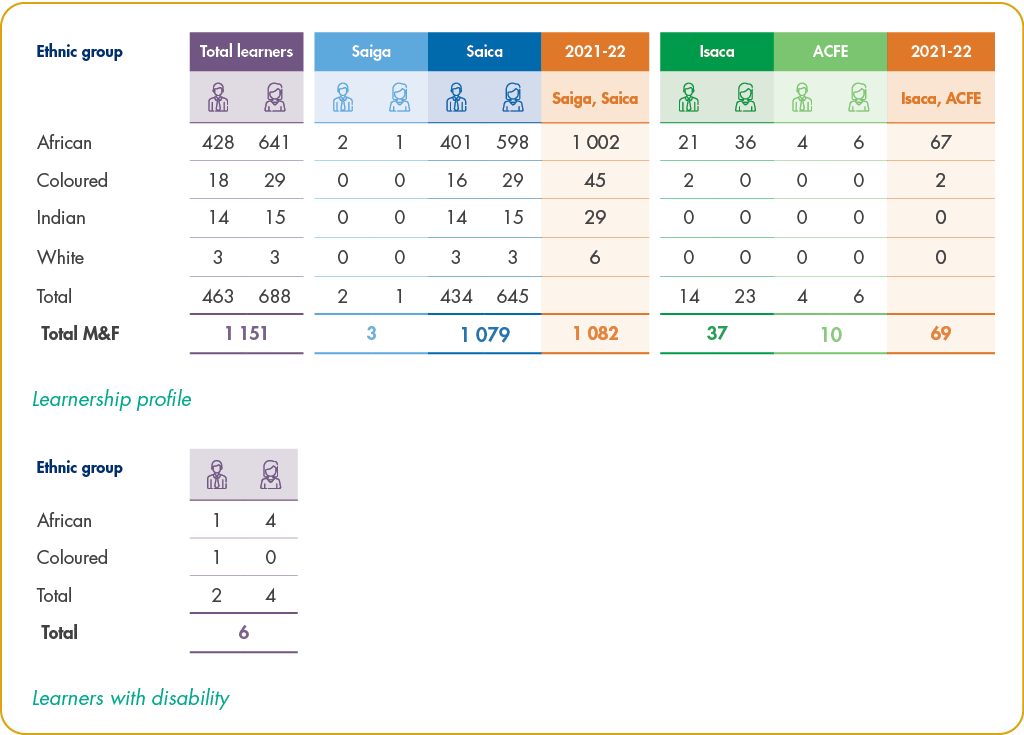
Employer of choice award
We were recognised as the Employer of choice in the public sector for the second consecutive year and ranked third in the Aspirational employer of choice category, up from 11th in 2021. The awards reward excellence and innovation in the graduate employment field. Being voted the top employer in the public sector by graduates showcases the AGSA as an organisation that provides an uplifting working environment for graduates entering the workforce.
Recruiting trainees with a Certificate in the Theory of Accounting

We recruited 425 trainees of which 225 (53%) had attained their CTA. Last year we had decreased our intake to maintain our financial viability following the impact of the pandemic. While we increased our intake in 2021-22, the number of trainees with a CTA remained steady as competition in the market rose. We are concerned about a trend at universities of reduced CTA classes.
Professionalisation of the AGSA
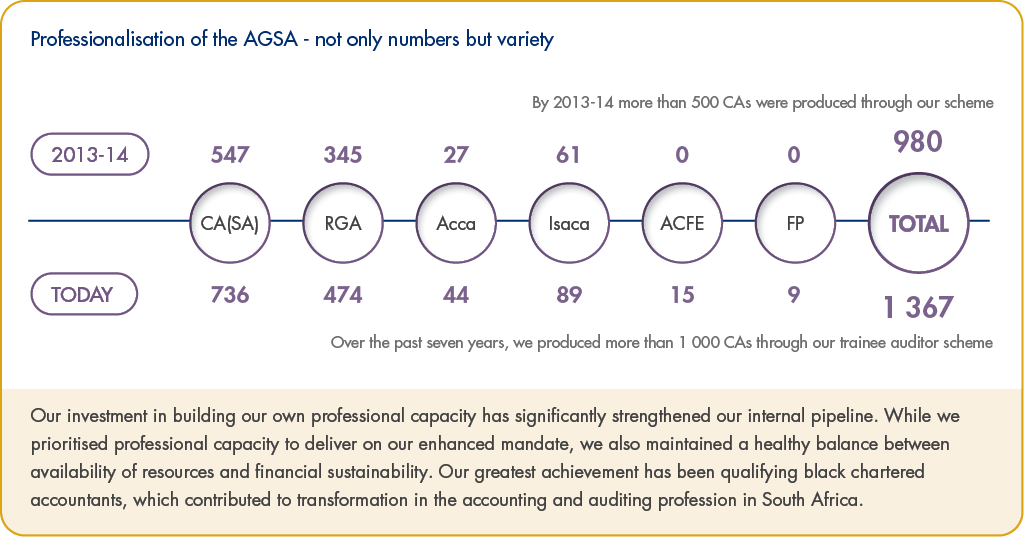
Our audit professionals per audit professional body
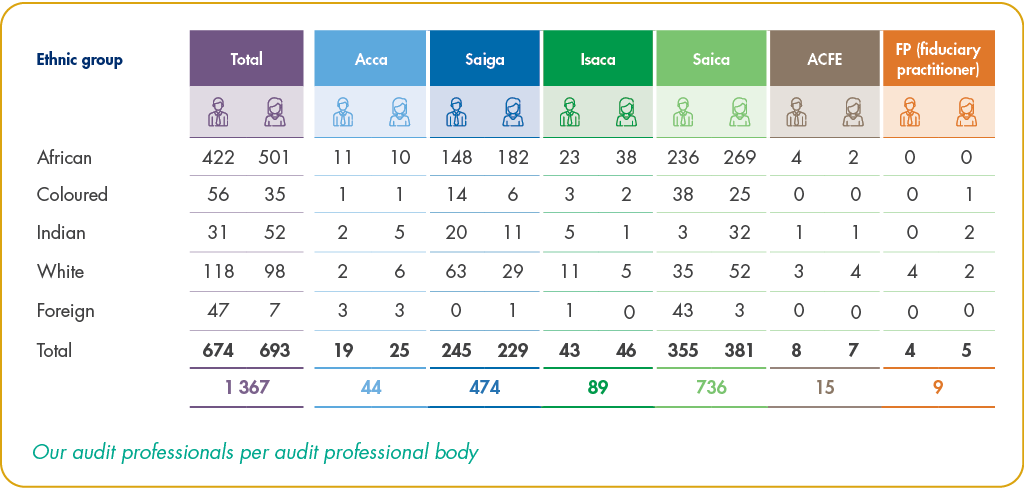
Talent management
Managing performance remains key to delivering on our strategy. We continue to re-engineer our performance and, as a preferred employer, review our reward philosophy and principles regularly to ensure that we are consistently aligned with current market-related practices, both in the private sector where we compete for talent, and within the public sector in which we operate.
Our focus for the year was to align the behavioural competency framework to our people management processes and implement it across the organisation.
We are currently redesigning our performance and talent management frameworks and developing a remuneration strategy as a response to our ever-changing environment and, more importantly, the new strategy #cultureshift2030 strategy.
Multistage development framework
The primary purpose of the multistage development framework is to develop an inventory of the required or projected knowledge, skills and capabilities across all employee levels in the organisation. We introduced a career advancement model that helps facilitates employee growth, using a horizontal and vertical approach. The key building blocks for the multistage development framework are a competency framework (technical and behaviour), role profiles, and professional and leadership development programmes.
In 2021-22 we focused on piloting the technical competency framework for financial audits, which was targeted at aligning the technical framework to the human capital value chain (recruitment, retention, training and development). This process concluded in the last quarter of 2021-22, with positive results that indicate the technical framework can be rolled out.
While we accept the recognition of the relevance and value of our work, it does take a toll on our staff, who have constantly been asked to step up in the last three years.
Employee wellness
Employee wellness continues to form an integral part of our strategic agenda. We recognise the value of a healthy and well workforce and have taken strides to achieve this goal.
Problems relating to mental health, which include stress, anxiety and depression, more than doubled from 307 in the previous year to 654 in 2021-22. According to an organisational report from ICAS, this is consistent with trends across the country due to the effects of the pandemic on the workforce and families alike. Relationship difficulties decreased from 659 to 576.
An assessment of our environment pointed to the need for targeted and customised support for trainee auditors. In total, 1 276 people, including employees and 91 immediate family members, accessed the employee health and wellness programme (EHWP) with psychosocial challenges. Our EHWP held 69 sessions on emotional impact, which included 2 after the audit cycles, 12 for APC candidates and 16 for ITC candidates. We also implemented other initiatives such as emotional readiness, stress and time management sessions, and engagements with psychologists to support ITC/CTA candidates. These proactive initiatives helped to mitigate the risks associated with chronic mental ill-health and associated physical illness.
